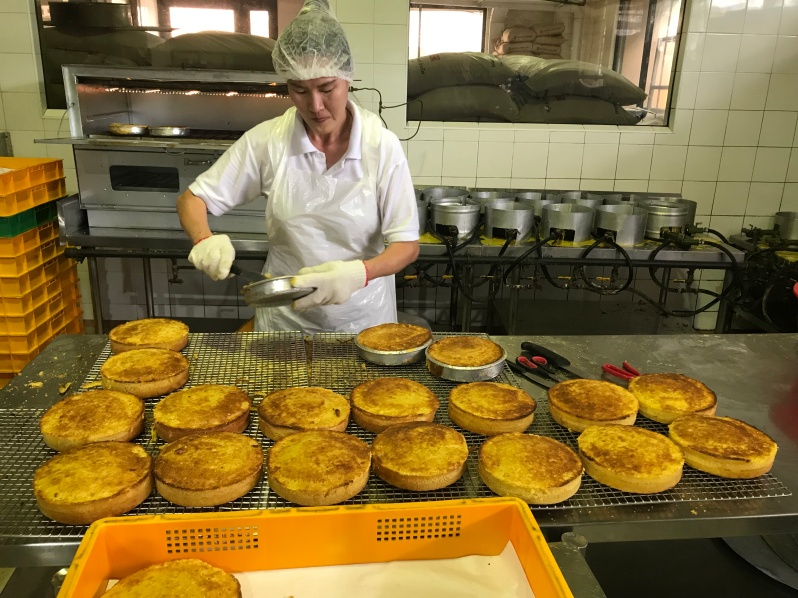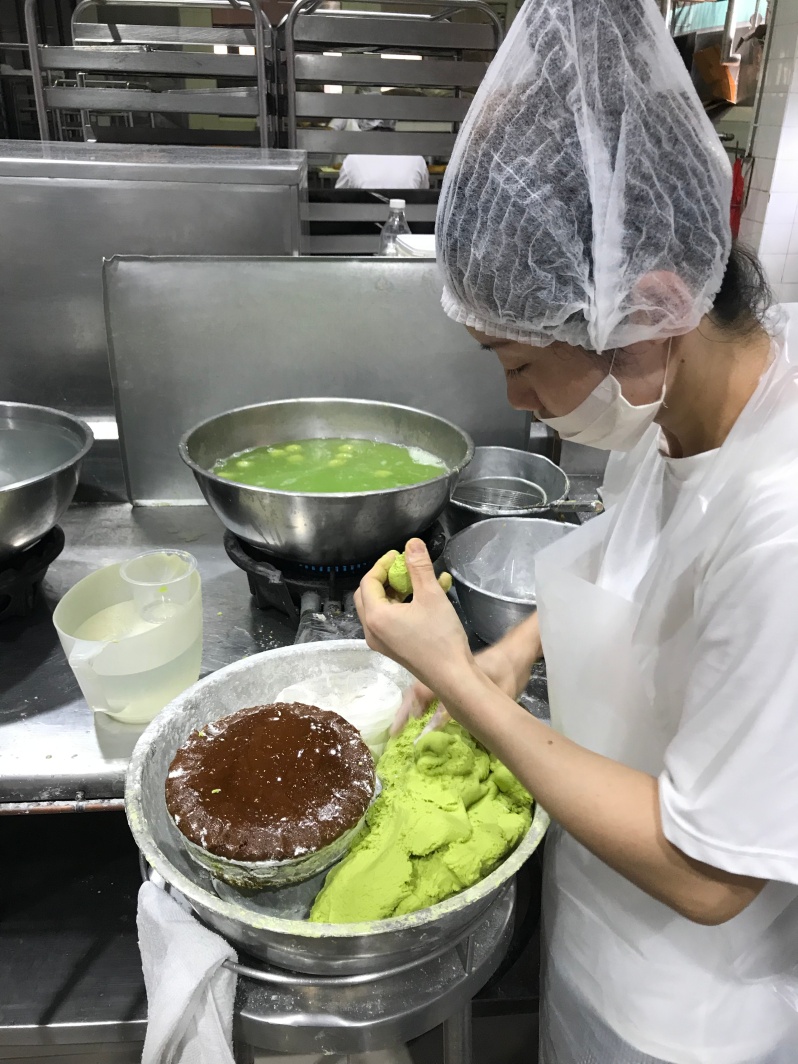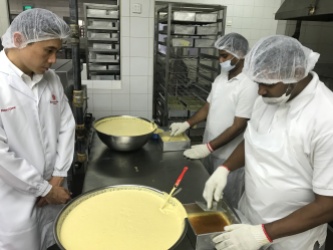

There’s a curious competition that never ends between the foodies of Singapore, Malaysia and Indonesia, and every time one place claims some dish as its own, there will be howls of indignation and protest.
Rojak.
Chicken Rice.
Satay.
Laksa.
Nasi Goreng.
Char Koay Teow.
“It’s not yours, it’s ours. And we can prove it.”
People get quite worked up.

Then I wrote a story in Hong Kong’s South China Morning Post about Anastasia Liew, who started the Singapore chain of Bengawan Solo cake and kueh shops. And in the video accompanying it, there’s a line that says Anastasia created a signature taste of Singapore.
Which got some Indonesians hooting: “Singapore signature? That’s Indonesian kueh!”
Of course it is, the recipes came with Anastasia from Palembang, in Sumatra, in Indonesia. And she was still Indonesian when she opened her shop named Bengawan Solo after that famous Indonesian river, and the even more famous Indonesian traditional song that has been recorded in numerous languages. (Just google “Bengawan Solo, song” and see the list that turns up in Bahasa Indonesia, English, Chinese and more.)
But whose kueh is it anyway?
I wish everyone would just relax and dig in.


Picture above: Gong Liqiong was masked throughout the time I watched her working. I had to see what she looked like because she’s a kueh hero! No wonder a Japanese productivity expert who observed the central kitchen declared that this is a factory that produces artisanal food items and many of its processes must remain hand-made, not machine-produced.
Stopped in my tracks by pandan and coconut, cinnamon and cloves
That day in 1981 when I dropped into the first Bengawan Solo shop in Marine Terrace, I was still Malaysian and had been in Singapore for just over a year.
I’d come to work at The Straits Times in August 1980. Moved to Marine Terrace a year later, and found the cake shop soon after.
If I was not from Kuala Lumpur, the fragrance of pandan and coconut, cinnamon and cloves would not have stopped me in my tracks.
As a Malaysian, I knew those aromas well!
In my hometown of Kuala Lumpur, and in Penang and Melaka, the kueh-kueh of the Straits Chinese Nyonyas were familiar fare. In Singapore too, with its Straits Chinese community. And of course, in Indonesia.
The food of this region is exceptional, delicious and shared by all.
Pictures above: Bengawan Solo’s most popular cake is the pandan chiffon cake, and people from Hong Kong and China are known to buy several to take home with them. Some mainland Chinese visitors love this cake so much, they tear it apart like a brioche and eat it on the spot! The shop people offer to slice it for them, like Anastasia, above, but they say: “No thanks, we like eating it like this!” Neo Seong Koon, 52, has been a baker with Bengawan Solo for 31 years, and specialises in whipping up hundreds of pandan chiffon cakes every single day.
Kueh and Keroncong. Whose music is this anyway?
I’ve not seen Anastasia regularly over the years. So I was touched when she invited my wife Hedwig and me to see her 45thoutlet, the fancy new flagship store at Changi Aiprort’s Jewel attraction. The mall with a giant waterfall is like nothing anyone would expect at an airport, so it counts as a new Singapore attraction.
That visit led to a Facebook post, which in turn led to the story and video in the South China Morning Post.
That meant I got to hang out with Anastasia, her husband Johnson and their son Henry for a couple of weeks, visiting their central kitchen in Woodlands, in the north of Singapore, going to lunch and having durian in Balestier Road.
Pictures above: The Indonesian layer cake, kueh lapis, takes 90 minutes to bake because it bakes one layer at a time! Anastasia devised a conveyor-belt oven, but it still needs bakers to slap on the layers of batter layer at a time, and there must be at least 18 layers or it fails Anastasia’s quality check. Her son Henry has learnt to make the kueh lapis, and sometimes demonstrates at the Jewel outlet. Below, pineapple tarts, walnut cake and kueh lapis sago are also Bengawan Solo specialties that have been hot sellers for 40 years.
From kueh to keroncong: Would you like to listen to Hetty Koes Endang?
And then Anastasia invited me to join her at the Esplanade to watch the legendary Indonesian singer Hetty Koes Endang in concert.
That was a special evening too. And very Indonesian too.
And again, if I had not been born in Kuala Lumpur and watched everything on TV after it first arrived in Malaysia in 1963, I would never have said yes to attending a keroncong concert. Being Southeast Asian is just weird and wonderful.


















